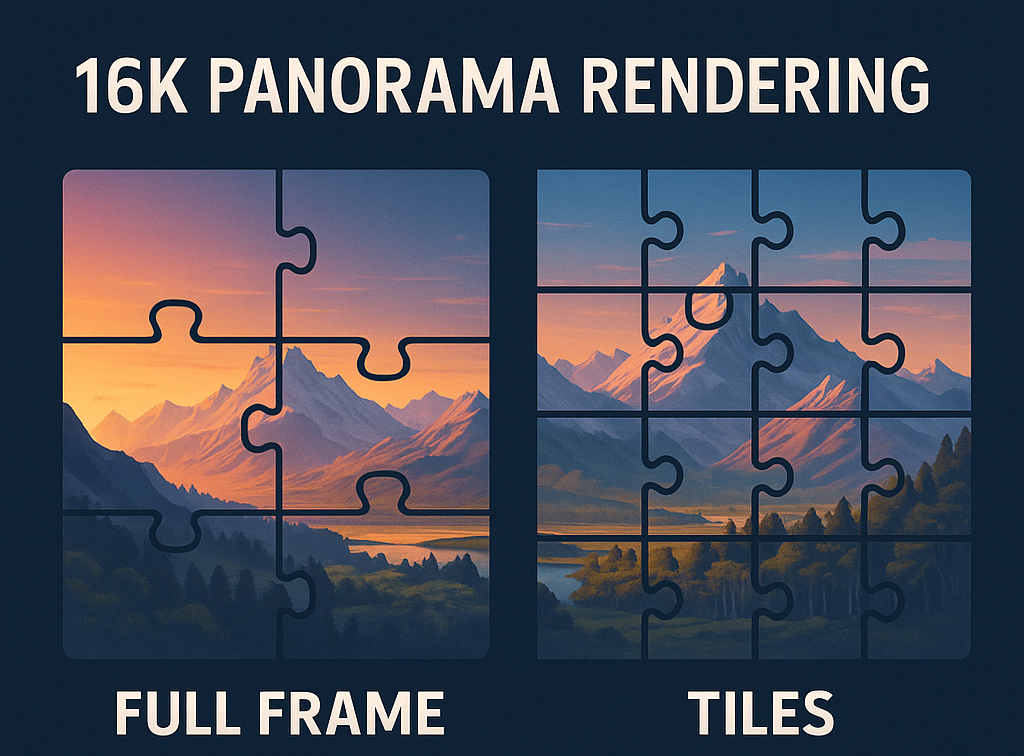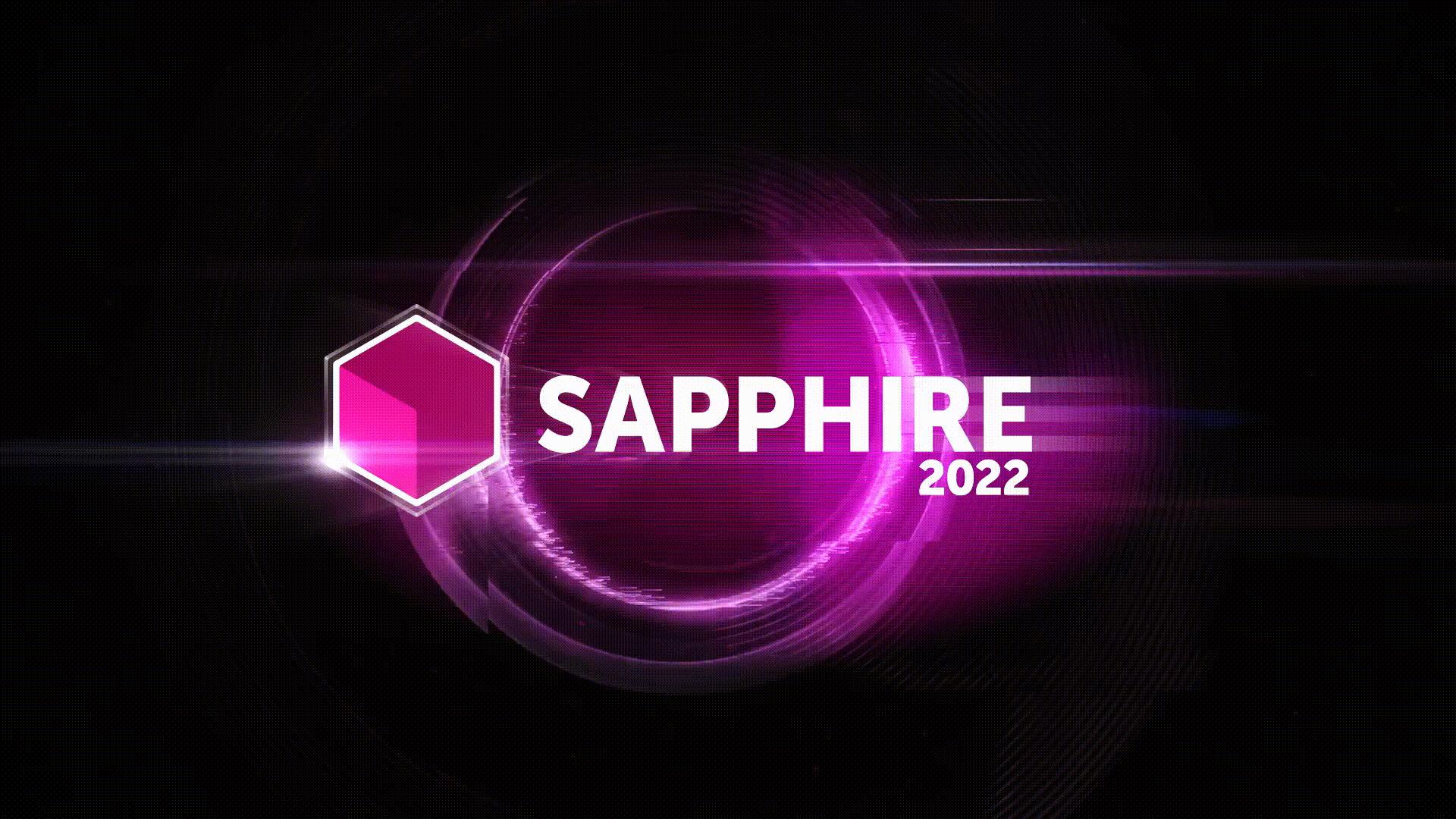Why 16 & 8 K Is Suddenly Everywhere
- Virtual Production LED volumes – Disney, Netflix & commercial studios now run 8–12 K LED walls; background plates are delivered at double native res so the wall never shows pixels on camera.
- VR headsets & domes – Quest 3 already pushes 4 K‑per‑eye; fulldome and planetariums request 12 K/16 K equirectangular plates for future‑proof playback.
- Architectural marketing – 360° tours replace stills; investors expect zoom‑in on tiny details.
Google Trends shows “16k panorama render” up +260 % YoY (May 2025). High‑res output is no longer niche.
A single 16 384 × 8 192 frame on one GPU can take hours — impossible deadlines.
Tile Rendering: The Shortcut
Tile (split) rendering chops a huge frame into small squares processed in parallel across several GPU boxes. Example grid: 4 × 4 tiles → each tile = 4 096 px.
| Method | Render time (Octane, RTX 3090) | Saving |
| Full frame | 7 h 12 m | — |
| Tile 4 × 4 (4 × RTX 3090) | 1 h 53 m | ‑74 % |
How It Works Under the Hood — No Tweaking Required
We run Deadline as our backbone scheduler; tile rendering is a native feature there. All presets are baked in — 3dsmax, Octane, Blender, Unreal Engine, NotchLC.
What you do:
- Upload your scene.
- Ask for a tile rendering in chat.
- Get your results
What happens backstage:
- Deadline splits the frame into a 4 × 4 grid.
- Jobs route to 4 × RTX 3090 nodes or relevant CPU nodes.
- Merge task stitches tiles and seam‑checks; mismatched tiles auto re‑render (no charge).
Three Tricks for Seam‑Free Tiles
- Disable post‑process AA & Bloom – they bleed across tile borders.
- Use a fixed noise seed (Octane / Cycles / Corona).
- 2‑px overlap — Forrender applies automatically when Tile Mode is ON.
3ds Max + Corona & V‑Ray: Turbo‑Still in 8 K / 12 K (GPU and CPU)
| Scene | Hardware | Full‑frame | Tile 4 × 4 | Time‑save |
| Interior 8 K (Corona 11, UHDCache) | 64‑core CPU | 3 h 40 m | 58 m | ‑74 % |
| Interior 8 K (Corona 11) | RTX 3090 | 1 h 45 m | 29 m | ‑72 % |
| Product close‑up 12 K (V‑Ray GPU) | RTX 3090 | 3 h 10 m | 46 m | ‑75 % |
Setup (GPU or CPU identical):
- Enable 2.5D Displacement (Corona, V‑Ray render tiles flawlessly).
- Tick Tile Mode 4 × 4 — Deadline splits .max, merges .CXR/.EXR.
- Seam‑check & tone‑mapping run post‑merge.
How We Handle It at Forrender
| 2 × RTX 3090 node | Price / h | Cost 16 K frame |
| Forrender | $3 | $6.78 (1 h 53 m) |
| Rebus (4 × RTX 5000) | $12 | $9.12 |
| iRender (4 × RTX 4090) | $9 | $7.98 |
We’re up to 70 % cheaper and test assemblies before delivery.




Leave a Reply